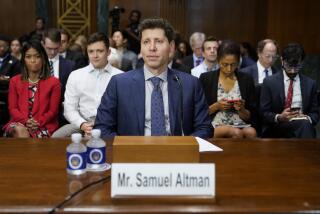This is what the SPAC skeptics have been warning about

It’s exactly what skeptics of the boom in special purpose acquisition companies have been warning about.
ATI Physical Therapy Inc., in its earnings debut as a public company after a merger with a blank-check firm, revised its revenue projections sharply lower and disclosed larger-than-expected staff turnover. But the surprises went far beyond that.
“The release also lacked a share count, a balance sheet, a cash flow statement or, for that matter, a good defense for why the company’s original guidance (which was officially maintained up until yesterday) ever made sense,” Michael Petusky at Barrington Research wrote in a report. “We are shocked by what has unfolded at ATI.”
ATI’s shares closed Tuesday at $3.82, down 54% over two days and ranking it among the worst-performing companies to have gone public via a SPAC, according to data compiled by Bloomberg. Before its earnings report, the Bolingbrook, Ill., rehabilitation services company had five buy ratings and zero calls to sell and an average price target of $13, Bloomberg data show.
By day’s end, at least five law firms from coast to coast had published news releases urging investors who had lost money to contact them for their securities fraud investigations.
Wall Street is enticing investors with SPACs — funds that won’t say what they’re buying.
SPACs, which sell shares to raise money and hunt for takeovers, can offer private companies a path to markets without the rigorous scrutiny of a traditional initial public offering. That has prompted a chorus of warnings from financial professionals in recent months that the flood of new SPACs was creating conditions for deals with unsustainable valuations and questionable disclosures. Although most mergers have so far held up, steep declines such as ATI’s underscore the risks and may force sponsors to do more thorough diligence.
Private equity firm Advent International owns about 62.9% of ATI, according to filings, and is now facing a paper loss of about $800 million. It agreed in February to take ATI public through a merger with Fortress Value Acquisition Corp. II, a SPAC sponsored by Fortress Credit, an arm of Fortress Investment Group.
Spokespeople for Advent and Fortress declined to comment.
Fortress itself is facing paper losses of about $54 million, including the $9 million in invested capital it injected to form the SPAC, according to people with knowledge of the matter. It was among participants in the private investment in public equity that supported the transaction.
It has had success with other SPAC transactions, including MP Materials Corp., a rare earths producer that closed Tuesday at $36.04, up 0.8%.
“Companies that go public via a SPAC tend not to have the stable, predictable business models” that their counterparts in a traditional initial public offering do, said Greg Martin, a managing director at Rainmaker Securities, which facilitates secondary transactions for private companies. “Investors may begin to have less faith in companies that go public via a SPAC, and the quality of the SPAC sponsor is going to become increasingly important.”
Most SPACs raise capital at $10 a share, a price that’s often used as a benchmark. Lordstown Motors Corp., the electric vehicle maker that tumbled after cutting full-year production expectations, closed Tuesday at $6.59. Hycroft Mining Holding Corp. has fallen to $2.27, Waitr Holdings Inc. has slipped to $1.59, and Ucommune International Ltd. ended Tuesday at $1.22.
ATI’s SPAC transaction gave the combined entity a market capitalization of $2.075 billion as of June 17, a figure that more than halved to $792 million as of Tuesday’s close. The company operates about 900 physical therapy clinics in 25 states.
Bloomberg staff writer Crystal Kim contributed to this report.
More to Read
Inside the business of entertainment
The Wide Shot brings you news, analysis and insights on everything from streaming wars to production — and what it all means for the future.
You may occasionally receive promotional content from the Los Angeles Times.










